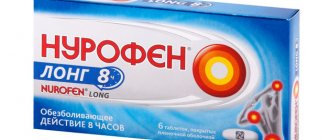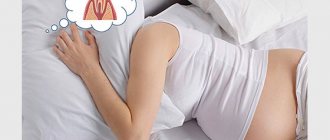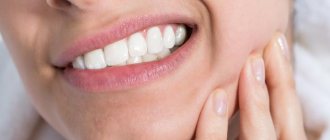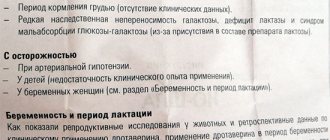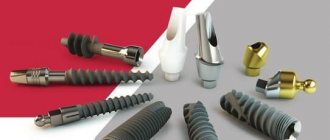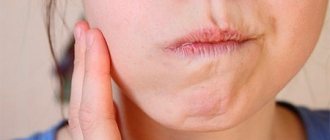In what cases is it impossible to go to dentistry?
The problem with visiting specialized medical institutions arises for people suffering from serious diseases of the musculoskeletal system. Bedridden patients and disabled people of group 1 are not able to visit the dental office for obvious reasons.
To seek help at home, you need to have good reason, or better yet, documented evidence. That is, you should prepare in advance documents confirming group 1 disability or a certificate from the attending physician about the patient’s condition.
Dental care at home for disabled people.
It is very important for human health to have good, strong teeth. The digestion process directly depends on the quality of chewed food, and if one or more teeth are missing in the oral cavity, then other organs also suffer. In this case, healthy teeth wear out faster, various oral diseases develop, and over time, this can lead to tooth loss. Therefore, it is necessary to seek help from a specialist in time.
However, it is not easy for a person with limited mobility to get to the dental clinic on their own. Not every medical institution is equipped with special ramps and elevators. Not to mention public transport. Today, modern private clinics have visiting dental teams. Who bring with them the necessary equipment and materials. You just need to leave a request by phone number or on the website of the medical institution. (For example, the website of a dental surgeon: https://www.dimitrovich.ru/online/)
Dental centers offer the following list of services provided at home:
- Oral cavity treatment,
- Tooth extraction
- Prosthetics.
Some clinics can give a discount to a patient with a disability if they have a document from the social security authorities about the need for dental treatment. This fact must be discussed in advance with representatives of the medical institution.
Of course, everyone understands that calling a dentist to your home is not a cheap pleasure. Especially for people with disabilities and pensioners.
But it is important to know that for privileged categories of the population, municipal clinics can provide free dental care at home . To do this you need:
- a person with a disability must have compulsory health insurance,
- the patient submits an application to the clinic at the place of registration for the need to be examined by a general practitioner at home,
- the local doctor gives an opinion on the patient’s health status and the need to provide him with dental care,
- the patient submits a request for dental services at home.
List of dental services at home, which are provided free of charge for a disabled person with limited mobility:
- examination of the oral cavity,
- removal of tartar,
- cleaning plaque,
- teeth grinding,
- caries treatment,
- treatment of gum diseases,
- filling,
- removal of crowns,
- taking impressions,
- fixation of crowns
- correction of prostheses,
- denture repair
Dental surgical interventions in the oral cavity are performed only in inpatient medical institutions. Treatments not covered by benefits:
- ultrasonic tartar removal,
- laser treatment,
- splinting of the dentition,
- expensive, imported materials and medicines.
Disabled people with a group are entitled to preferential prosthetics. And some regional programs make it possible to do this for free. To find out which version of the territorial program exists in your city, you need to contact the government and social protection authorities. You may need to bring a number of documents and wait your turn for free prosthetics.
List of these documents:
- Written statement,
- passport,
- disability certificate,
- certificate of family composition,
- certificate of need for prosthetics,
- certificate type 2-NDFL for each family member for 3 months,
- for a child under 14 years of age, a birth certificate and passport of a parent or guardian.
People who are unable to move independently can be put on a waiting list by their relatives, guardians or social workers.
Similar articles:
Medicine and health → Benefits of dental implantation
Medical institutions and organizations → Dental services for everyone
Healthy lifestyle → Teeth whitening at home
Medicine and health → Dental prosthetics – types of dentures and indications for use
Medical equipment → Modern dentures. Which ones are better, types and comparisons.
About diseases → Prevention of caries and other dental diseases
Where to go to call a dentist
It all depends on your financial capabilities. We can safely assume that a doctor from a paid dentistry will have better equipment and the service itself will be at the proper level. But families with disabilities rarely have the funds for expensive treatment, so their direct route is to free city dentistry. An important point: it is better if you decide in advance what to do with the diseased tooth: remove or treat. It is clear that sometimes it is difficult to decide, so if you are not sure, call for treatment. Well, if there are no other options, then you will need a surgeon. All this must be brought to the attention of the receptionist when you place the call.
Free dental clinics have a schedule of home visits. So if you say you need treatment, you may be scheduled for a day next week. Another thing is that if you receive a call for acute pain, the doctor will arrive on the same day.
Will a bedridden patient be saved from toothache?
Yes, according to the Moscow city law “On measures of social support for certain categories of residents of the city of Moscow” (dated November 3, 2004 No. 70), such assistance is provided for bedridden patients with acute toothache in the capital. According to the order of the Moscow Department of Health “On improving the provision of dental care to disabled people with severe disabilities” (dated 07/07/2009 No. 783), disabled people with severe disabilities have the right to such assistance: war invalids, participants in the Great Patriotic War, combat veterans - list huge.
The same assistance to the same categories of patients should be provided throughout Russia, which is prescribed in the federal law “On Veterans.” Upon presentation of a uniform certificate established by federal legislation, and in the presence of medical indications.
“In principle, there are no diseases when a bedridden patient with toothache cannot be helped,” the head of the department said in an interview with MK. Department of Pain Management, Moscow State Medical University named after. Evdokimova, Doctor of Medical Sciences, Professor Solomon Abramovich RABINOVICH. - But... I think that at home you just need to relieve the pain with the help of medications. Then monitor the general condition of the bedridden patient. And only after that decide whether to treat the patient at home, putting his life at risk, or take him to a hospital where there is dentistry and all the conditions for safe dental treatment. I am convinced that it is possible to fully help a bedridden patient with acute pain without fear for his life only in a hospital setting. After all, bedridden patients are, as a rule, elderly people with a bunch of chronic diseases.
At home, dental care for such seriously ill bedridden patients, even if provided today (to remove a tooth, cure caries, etc.), is associated with risk. As you know, it is not licensed. What if there is bleeding from the tooth cavity or the patient becomes ill with his heart? It will be very difficult to save him. After all, inflammation of the teeth itself, medical manipulations with their treatment can aggravate the underlying disease and provoke deterioration.
Ideally, a bedridden patient with acute toothache should be loaded on a stretcher into an ambulance and hospitalized in a hospital where there is dentistry for 1–2 days. At one time, in the conditions of Moscow, such assistance was provided for, and, as far as I know, such an opportunity still exists. By the way, this is world practice. After all, everything in the dental office is sterile, and there is no fear that complications will arise during treatment.
According to the rules, when treating teeth, an anesthesiologist-resuscitator, cardiologist, or other specialist must be present next to a seriously ill patient, based on the underlying disease of a particular patient, in order to provide urgent care in a timely manner. For example, if it is a heart disease, the cardiologist should prepare him for dental treatment with heart medications. If the patient has diabetes, the endocrinologist must normalize blood sugar before treating teeth. This is the norm prescribed in medical documents.
And if, despite all these dangers, one of the dentists decides to provide assistance to a patient who has a toothache, then before doing so he must check the patient’s functional state and conduct monitoring using a special portable device. Find out the patient’s blood pressure, pulse, heart rate, etc. And only after that remove or treat the diseased tooth.
But, I repeat, it is impossible to ensure the sterility of medical manipulations with a tooth at home. In addition, the apartments do not have sufficient lighting for this, or a special chair for bedridden patients.
I am well acquainted with world practice, I am the post-president of the European Federation for the Development of Pain Management in Dentistry. Treatment of teeth with acute pain in bedridden patients is carried out only in a hospital - this is world practice.
...We managed to get through to the medical workers of dental clinic No. 11 of the Moscow Department of Health, who provide home care to bedridden patients in the Savelovsky district. “Our doctors provide assistance to certain categories of patients right at the bedside: they relieve acute toothaches and monitor their health using a portable device. And if necessary, they treat teeth and provide prosthetics,” said Galina Konstantinovna Shatunova, a receptionist at this clinic.
The nuances of calling a dentist to a disabled person’s home
Prepare for possible difficulties. Put yourself in the position of a doctor - it is very difficult to work in conditions where the patient is not in the dental chair, and with a portable instrument. In addition, in such conditions it is impossible to take an x-ray of the diseased tooth and you will have to treat or remove it, as they say, at random.
Therefore, prepare for the dentist’s arrival. Look for additional lamps and arrange good lighting in the room, prepare a chair for the doctor, and, just in case, a bowl and a towel. Check with the reception desk in advance to see if you may need to buy painkillers and a syringe of the appropriate size for anesthesia. Understand that it is difficult to expect perfect results under these conditions, so be patient and polite. The doctor will appreciate all this, and it will be easier for him to work in a friendly environment.
Have you had any experience of calling a dentist to your home? If yes, write about it in the comments, our readers will be very grateful to you!
Tooth extraction
Dental clinic “Specialist”, where you can remove teeth under general anesthesia, tooth extraction is carried out by experienced dental surgeons, and during the procedure they use the best modern painkillers and the latest equipment. These measures provide patients with a comfortable and painless tooth extraction. In our dental clinic “Specialist” we can perform all types of tooth extraction, from children’s baby teeth to complex operations for atypical tooth extraction. The tooth extraction procedure can be performed at any time of the day, since dentistry operates around the clock. Tooth removal prices in Moscow can vary greatly, as there are different degrees of complexity of the procedure. Therefore, the exact cost can be found out only after a full examination. Tooth extraction should only be done as a last resort, when other methods to save the tooth are no longer possible or such a tooth may cause more serious complications. The most common reason for tooth extraction is the need to sanitize the oral cavity in the presence of diseases such as chronic periodontitis in the acute stage, when it is impossible to eliminate the inflammatory focus at the apex of the tooth. Multi-rooted teeth, which are the cause of odontogenic osteomyelitis, are also removed. The dentist can remove teeth when fitting a removable denture, but for this there must be more strict indications. If a multi-rooted tooth is to be removed, then the dental surgeon needs to determine the structural features of your tooth, the location of its roots and their deviations. For this purpose, an X-ray examination of the tooth is performed.
Indications for tooth extraction:
- with severe tooth decay due to caries, injuries and impossibility of restoration;
- with severe destruction of the ligamentous apparatus holding the tooth in the gum due to disease;
- with periodontitis, when it is not possible to eliminate the source of inflammation;
- in preparation for orthodontic treatment;
- for sinusitis, cysts when saving the tooth is impossible;
- preventing fixation of the prosthesis;
- supernumerary teeth.
Surely you have often wondered why your teeth start to hurt at night? This is due to the human biological clock. Mainly with the work of the adrenal glands. They produce corticosteroids - hormones that have an anti-inflammatory and analgesic effect on the body. At night, their work slows down, and the secretion of hormones decreases. As a result, a person begins to feel pain more acutely. That is why many patients have to urgently consult a doctor at night, when it becomes impossible to endure the discomfort. The doctors of the Specialist clinic are ready to provide you with full dental care both during the day and at night.
What happens if the tooth is not removed?
A doctor often has to deal with a situation where a patient has decided to numb the pain with pills at home and postpone a visit to the clinic until better times. In such a situation, the process enters the chronic phase. The pulp dies, nutrition and mineralization of the tooth stop, but the process of its destruction continues. As a result, it is completely destroyed and becomes unsuitable for further restoration with crowns or veneers. Infection from the pulp chamber penetrates deep into the root canals and then into the periosteum. As a result, inflammation spreads to deeper tissues, and a cyst and abscess can form. Such processes, as it becomes clear, are fraught with systemic complications for the body.
How does the procedure work?
Simple removal - the procedure involves fixing the forceps, rocking the tooth and removing it from the socket. It takes no more than 20-30 minutes. The patient then bites on a gauze pad to stop the bleeding and goes home. Complex removal - is carried out in the presence of certain complications (retention, complete destruction of the tooth, multiple twisted roots). In this case, additional manipulations are required to remove the tooth from the socket. After the procedure, stitches are applied, which the doctor will remove after 7-10 days. The tooth extraction procedure is always performed under local anesthesia. Modern anesthetics demonstrate very high efficiency. We use only reliable certified drugs. Thanks to this, the procedure is painless. You can remove a tooth at night at the Specialist dental clinic. Experienced dental surgeons see patients around the clock. The removal of teeth is within the competence of this particular doctor. Extensive practical experience and a high level of competence of our specialists allow us to carry out the procedure quickly, as atraumatically as possible, and in a comfortable manner for patients.
Specifics of wisdom teeth removal
The specificity of wisdom tooth removal is due to the fact that it occupies an extreme position in the dentition and erupts when the dentition is already fully formed. In such conditions, the use of surgical intervention is difficult due to limited visibility and insufficient access. The wisdom tooth is often impacted and dystopic. To clarify its location, X-ray diagnostics is of great importance. Removing a wisdom tooth is characterized as difficult. Its duration can be more than an hour. In this case, the percentage of complications is significantly higher. To obtain a high-quality result, the professional skills of the surgeon, as well as the effectiveness of postoperative measures, are important. To somewhat simplify tooth evacuation and make it less traumatic, the surgeon often uses not only forceps, but also a drill and ultrasound.
Anesthesia
Since tooth extraction is a traumatic event, the duration of which varies depending on various prerequisites, specialists carefully select the necessary anesthesia method. The preference is determined by the nature of the upcoming operation, the expected duration, as well as the individual characteristics of the patient. Most often, a comfortable sensation is provided by the use of local anesthetics. In some cases, when removing a baby tooth or a tooth with weakened fixation, they can be applied by application. However, most often anesthesia is carried out by injection, a combination of conduction and infiltration techniques. If, during the examination of the allergy history, the doctor has doubts about the possibility of using anesthetics, tooth extraction can be performed under sedation or general anesthesia. Surgeons at the Specialist clinic also resort to this technique in cases where a large volume of surgery is required.
Where to have a tooth removed on Sunday?
The dental clinic “Specialist” is open seven days a week. We are located in the center of Moscow, next to Mendeleevskaya metro station and Novoslobodskaya metro station. You can have your teeth removed on weekends – Saturday or Sunday. This option is suitable for patients who do not want to get out of their work schedule.
Using the lunar calendar
Teeth extraction according to the lunar calendar is becoming increasingly popular, especially among those patients who are dental-phobic. The dentists at the Specialist clinic are sympathetic to patients’ preferences to perform surgical interventions on those days when these procedures are recommended in accordance with the position of the stars. But it’s one thing if we are talking about a planned event and quite another when it is necessary to carry out urgent removal. Delay in this matter can lead to serious consequences, especially in purulent processes. After consulting with a doctor, you can make the right decision and develop the best tactics in this matter.
Prices for teeth removal at night
You can find out about the cost of teeth removal services on our website in the Prices section. Both simple and complex tooth extractions are cheaper with us than in many other Moscow clinics. Despite our affordable pricing policy, we provide patients with a high level of service. The rooms are equipped with modern equipment for diagnosing pathology and treating teeth. It is worth noting that we pay special attention to the examination. Modern technologies make it possible to save even “hopeless” teeth, and therefore removal is carried out only in desperate situations if there are strict indications. You can ask additional questions regarding tooth extraction, as well as make an appointment with a specialist online or by phone. Dental clinic “Specialist” - we are glad to see you at any time of the day!
Dental care at home, including services for preferential dentures, for disabled people with severe disabilities is provided by dentists, dental therapists, and orthopedic dentists in the scope of the list of services approved by orders of the Moscow Department of Health dated July 7, 2009 No. 783 " On improving the provision of dental care to disabled people with severe disabilities”, dated 08.08.2017 No. 558 “On approval of the Price Guide for orthopedic dental services provided by medical organizations subordinate to the Moscow Department of Health to certain categories of citizens at the expense of the Moscow city budget.”
Consultations are provided at home, caries and pulpitis are treated with the subsequent placement of a filling, measures are taken to relieve acute pain during exacerbation of periodontitis, pathological periodontal pockets are treated, dental plaque is removed, repair services and production of certain types of removable dentures are provided. Performing surgical procedures in the context of providing dental care at home is not provided for by regulatory documents.
Home calls are serviced at addresses included in the service area of the institution.
The patient must have a conclusion from a local physician regarding the possibility of performing dental treatment at home, issued by the medical organization at the patient’s place of residence.
Calling a specialist doctor to your home is carried out by telephone at the institution’s reception desk.
Reception of calls and visits by medical workers at the patient’s home is provided during the opening hours of the institution from Monday to Friday.
The organization of medical care at home in a planned form is carried out in accordance with the priority established on the basis of entering data into the “Book of recording doctors' calls to the house”, but does not exceed 10 calendar days. The patient is informed about the date and time of the visit to the specialist doctor.
House calls due to emergencies are processed on the day of receipt as quickly as possible.
A repeat appointment is scheduled by a medical specialist; the time and date of the appointment is agreed upon with the patient.
If it is impossible to provide dental care at home, the patient is given a referral for hospitalization in a hospital according to the established procedure, or if a condition is detected in the patient that requires urgent or emergency medical care, the performer of the home visit organizes a call to the SSiNMP team named after. A.S. Puchkova.
Dental treatment at home (in hospital)
In connection with the current sanitary and epidemiological situation in city dental clinics to provide emergency dental medical care at home to certain categories of citizens (persons sick with coronavirus infection COVID-19, or contacts of a patient with COVID-19, who are in isolation upon return due to border, patients who have had pneumonia, within 14 days from the moment of discharge from the hospital), mobile dental teams (hereinafter referred to as VSB), including children's, were created, consisting of a dental therapist, a dental surgeon and a nurse. VSB are located on the basis of the State Budgetary Healthcare Institution “Maxillofacial Hospital for War Veterans of the Department of Health”.
Teams are on call 24 hours a day
by phone: 8-499-842-41-12.
Departure of teams from 08:00 to 20:00 from Monday to Sunday.
The task of the teams is to treat acute toothache and other emergency and urgent dental conditions associated with acute toothache, dental injuries, application and removal of previously applied sutures, tooth extraction, and primary treatment of stomatitis.
The teams are equipped with portable dental equipment, personal protective equipment, medical equipment, and ambulance vehicles. The team's visit is free of charge for patients as part of the compulsory health insurance program. The patient must present a compulsory health insurance policy and an identification document (passport, birth certificate).
Types of interventions provided by mobile teams: opening of the tooth cavity with medicinal treatment; extirpation, removal of tooth pulp decay; application of devitalizing paste; applying a temporary filling; removal of fillings, crown trephination; opening of periodontal abscess; removal of a permanent tooth, simple and complex, including using a drill; opening of a soft tissue abscess in the oral cavity; opening of the subperiosteal abscess (washing, drainage); treatment of alveolitis with socket curettage; excision of the hood; applying and removing sutures; mechanical and drug stoppage of bleeding; anesthesia; reduction of dislocation of the temporomandibular joint; treatment of acute forms of stomatitis.
What does a doctor need to know?
When making a call, you must provide the following information.
- Reason for call. What exactly is wrong with the tooth and why does it need to be removed? Sometimes a doctor can come and convince the patient that it is better to carry out treatment.
- Where exactly is the diseased tooth located?
- Does it stagger, is there pain when biting or pressing?
- Is there a reaction to temperature?
- Is there swelling of the gums and cheeks?
- If the patient has had a heart attack or stroke, has chronic diseases of the heart, blood, central nervous system or allergies, report this immediately.
- If he is taking medications that lower blood pressure or thin the blood, you should also tell the doctor about this in advance.
- You will also be asked for the patient's age and address.
Dentist at home
The set of equipment for working at home includes a set of tools, materials for dressing, anesthetics, antiseptics, syringes, material for suturing, means to stop bleeding, disposable gloves and a mask, means for illuminating the work area. The doctor also has a tonometer in his arsenal. Before work, the doctor measures the patient's blood pressure. If it is very high, then there is a risk of severe bleeding.
Tooth extraction at home
In some cases, it is better to get advice from your attending physician about whether it is possible to carry out the removal at home, what anesthetic agents are permissible to use, etc. Some dentists even require a certificate - permission from the therapist.

